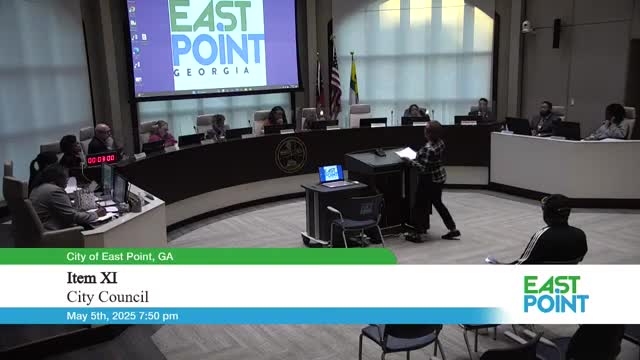Article not found
This article is no longer available. But don't worry—we've gathered other articles that discuss the same topic.
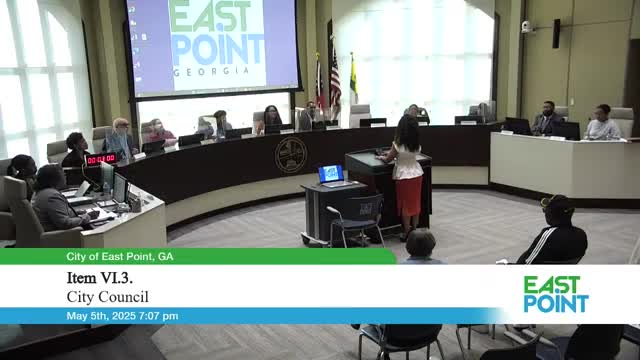
New East Point business owner presents Enzu Smoothies to council
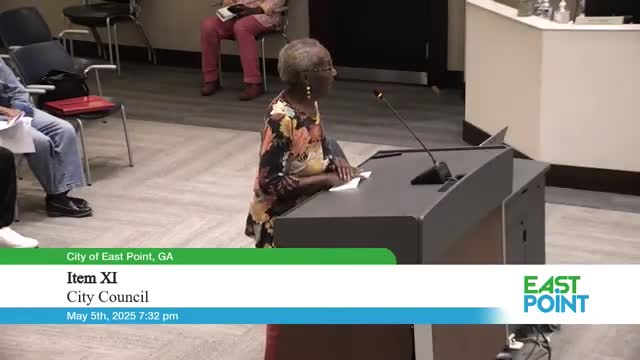
Council approves emergency HVAC procurements for Fire Station No. 3 and CityWalk water‑filter plant
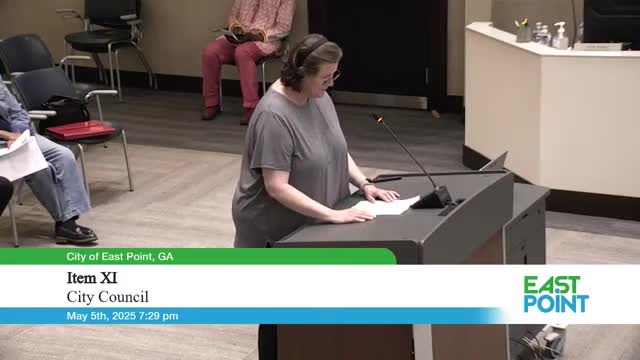
Council adopts policy to implement federal Pregnancy Workers Fairness Act in employee handbook
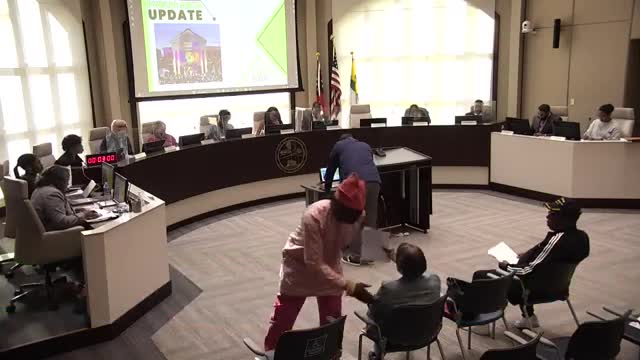
Councilwoman: East Point should court soccer clubs to capture 2026 World Cup economic opportunities
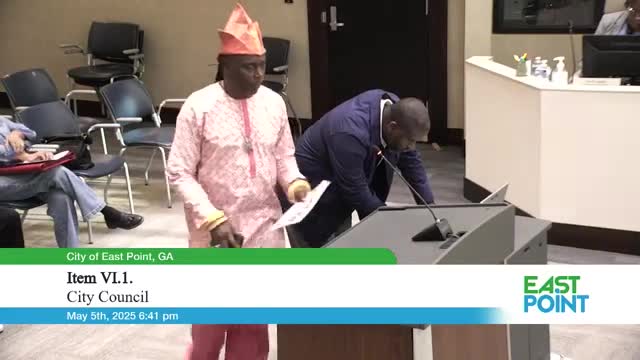
East Point parks and public‑art coordinator outlines murals, festivals and new programs
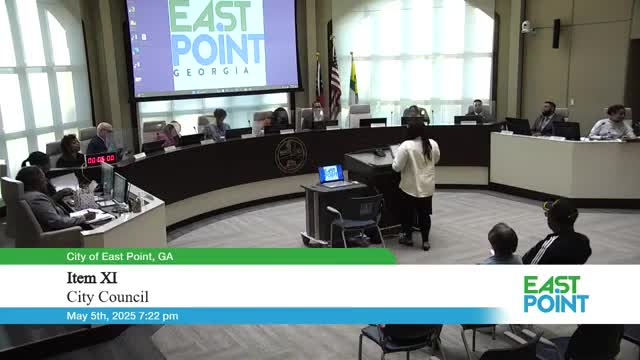
Residents challenge city budget priorities, call for larger direct‑assistance fund and audits
